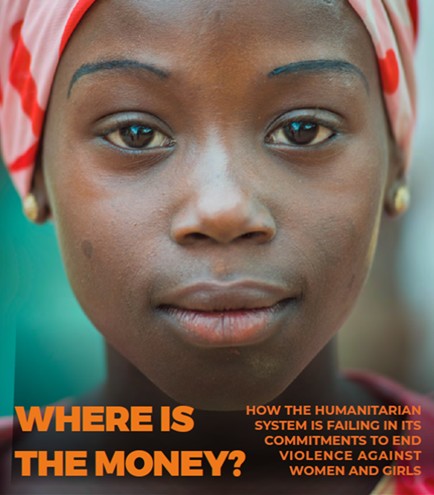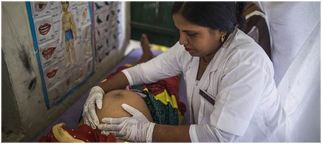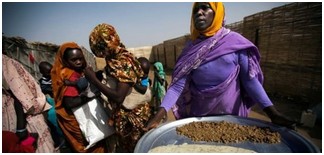Investment and innovation for inclusive health systems key to nations’ prosperity
Извор: Светска здравствена организација – 18.06.2018
“Investment in health is an investment in future human development, and well functioning health systems are so essential to improve societies’ health in general.” President Kersti Kaljulaid of Estonia delivered this message in a speech at the opening of the high-level meeting Health Systems for Prosperity and Solidarity: leaving no one behind, which took place in Tallinn, Estonia, on 13–14 June 2018.
President Kaljulaid’s sentiments would be repeated many times throughout the meeting, which celebrated 10 years since the signing of the Tallinn Charter. The event offered a platform to reflect on the progress made since its signing and to explore new ways of transforming health systems to improve health.
In her opening address, WHO Regional Director for Europe Dr Zsuzsanna Jakab acknowledged that European countries have made important strides towards improving health and extending health services to the entire population. But she also challenged countries of the Region to strive for more, saying, “We can do better. With our knowledge and experience of what works, and new opportunities provided by technology, we should not wait decades to narrow the health gap between countries with high and low outcomes. Faster health gain is possible.”
Throughout the event, a range of policy-makers and international experts shared their experience and ideas of how to deliver on the commitments and values of the Tallinn Charter. They reaffirmed that European health systems should be built upon the key principles of solidarity and equity, even in an environment that has changed dramatically in the 10 years since the Charter was signed.
Applying the concepts of include, invest and innovate to transform health systems
The event, which brought together 235 participants from 41 countries of the WHO European Region, was designed around 3 main themes: include, invest and innovate.
The first 2 plenary sessions focused on the theme of inclusion, beginning with a keynote speech from Professor Charles Normand of Trinity College Dublin (Ireland). Professor Normand outlined 3 dimensions of universal health coverage – “who is covered for access to care, to what extent are they covered and for what services are they covered”.
A lively dialogue followed, with country perspectives from Georgia, Greece and Slovenia. Participants examined what the movement towards universal health coverage looks like in practice on a country level, including the persistence, dedication and, at times, compromise required.
The second session delved into the question, “Can people afford to pay for health care?” Technical experts from the WHO Barcelona Office for Health Systems Strengthening presented initial findings from a new study that uses data from 25 countries in the Region to assess financial protection. The data show that even in Europe’s richest countries, some households are impoverished by paying for health care. This is particularly due to high out-of-pocket payments.
Presenters emphasized that adopting pro-poor policies and improving the coverage of medicines can help strengthen financial protection. They noted that a wealth of good practice in this area exists in the Region – but it must be more widely applied.
A short film featuring Mr Geert van Maanen, who served as Secretary General of the Ministry of Finance and subsequently of the Ministry of Health of the Netherlands, kicked off the session on investment. It explored the challenges faced when seeking resources for health systems.
This was followed by a keynote speech by Dr Tomáš Sedláček, Chief Strategist at ČSOB, a national bank in Czechia, who provided food for thought for the panel discussion on the values and arguments – ethical and economic – for investing in health systems. Two parallel sessions then examined ways to reframe the dialogue between health and finance sectors on investing in health systems and in public health services.
The final plenary session offered a wide-ranging discussion on harnessing innovations and systems to meet people’s needs. It began with a keynote speech by Professor Trish Greenhalgh of Oxford University (United Kingdom), who explained the complexity involved in adopting new technologies in health-care settings.
Dr Greenhalgh’s systematic approach to the topic was then brought to life with concrete examples of innovation from Belgium, Finland and Sweden. The audience posed a number of questions to the panel, probing both the challenges and opportunities of innovation as it relates to the health sector.
The 2 parallel sessions that followed looked at different sides of innovation: innovating service design and delivery, and governing technological innovation.
Tallinn Charter values remain relevant today
As the meeting came to a close, Dr Hans Kluge, Director of the Division of Health Systems and Public Health at WHO/Europe, summarized the event. He concluded that the major take-home message from the 2 days in Tallinn was the irrefutable commitment of European countries to building health systems based on solidarity.
Dr Kluge outlined 3 key ways that countries of the Region can take action on this commitment:
- redouble efforts to achieve universal health coverage;
- work harder to put people centeredness into practice; and
- think and plan ahead to ensure health systems are prepared to deal with any crisis or shock.
Ms Riina Sikkut, Minister of Health and Labour of Estonia, expressed the sentiments of many in attendance when she said, “The Tallinn Charter remains close to our hearts and I am sure we will meet in Tallinn again.”
A meeting outcome document, accepted by acclamation, will be combined with the outcomes of the high-level event Health Systems Respond to NCDs, held in April 2018 in Sitges, Spain, and presented as a resolution at the 68th session of the WHO Regional Committee for Europe this September.



